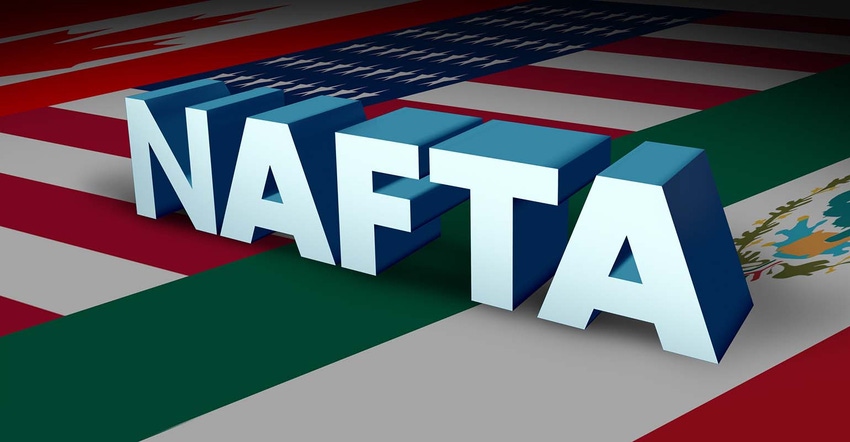
by Sarah McGregor and Andrew Mayeda
At the border of Mexico, heads of Texas industries ranging from energy to farming are saying they’d like to keep NAFTA largely intact with minor modifications.
Key business leaders talked up the economic benefits of the 23-year-old accord at a U.S. Senate committee field hearing in San Antonio, countering the message of U.S. President Donald Trump who called the pact a “disaster.” Trump has threatened to exit NAFTA if current talks to update the deal don’t yield more benefits for American workers and companies.
“We believe in NAFTA, it makes sense and we ask for your help in continuing to go forward,” Richard Perez, chief executive of the San Antonio Chamber of Commerce, said at the hearing on Monday, led by Senator John Cornyn, a Texas Republican. Perez suggested changes like improving regulations and customs procedures and reducing non-tariff barriers would help facilitate trade across the borders.
Negotiators should ensure any new deal will avoid “retaliation against American products,” he said.
Texas is a critical voice in the NAFTA overhaul as the nation’s biggest energy-producing state and a conservative stronghold that helped elect Trump. It’s also at the forefront of the immigration debate as it sits on the border of Mexico where the president wants to build a wall.
Texas would be one of the hardest-hit states by a NAFTA withdrawal, according to a new analysis by the U.S. Chamber of Commerce. An exit would throw into jeopardy nearly a million jobs that depend on trade with Mexico and Canada, with nearly half the state’s exports destined for the bordering nations, according to the Chamber.
Farming Blow
America’s withdrawal from the accord would “devastate” the farming community, Russell Boening, president of the Texas Farm Bureau, said at the hearing. “We must make sure that doesn’t not happen.” The U.S. Chamber estimates that Mexican tariffs on beef would rise to 25% from zero if NAFTA were to be killed, as an example of the impact of such a move.
Todd Staples, the president of the Texas Oil and Gas Association, said NAFTA has been “fundamental” for the economy by keeping fuel prices at a fair level, and he called for preserving the pact’s investor-state dispute settlement mechanism. The ISDS, presently laid out in NAFTA’s Chapter 11, is “the very backbone” of legal protections in the agreement, he said. The U.S., in talks to renegotiate the deal, has proposed the idea of making it optional for each country to participate in the ISDS.
For the auto sector, proposed tightening of regional- and U.S.-specific content requirements would increase costs for carmakers and fail to reduce America’s trade deficit with Mexico, which is one of the Trump administration’s top priorities for the NAFTA talks, said Mitch Bainwol, chief executive officer of the Alliance of Automobile Manufacturers.
“While we wholeheartedly support this administration’s goal of growing U.S. manufacturing and jobs, making NAFTA’s auto rules of origin more stringent will have the opposite effect,” Bainwol said.
U.S. Trade Representative General Counsel Stephen Vaughn, also speaking at hearing, gave no indication the administration intends to soften its demands, including a mandatory, regular review of the pact. The U.S. has proposed adding a five-year sunset clause to NAFTA, which would see the deal terminated if the parties can’t agree to extend it.
USTR Robert Lighthizer, who is leading NAFTA talks for the Trump administration, “agrees strongly that the current version of NAFTA is a bad deal for America,” said Vaughn.
The fifth round of NAFTA negotiations wraps up on Tuesday in Mexico City, with the parties aiming for a deal by the end of March.
--With assistance from Ryan Beene.
To contact the reporters on this story: Sarah McGregor in Washington at [email protected]; Andrew Mayeda in Washington at [email protected]
To contact the editors responsible for this story: Brendan Murray at [email protected]
Sarah McGregor, Vince Golle
© 2017 Bloomberg L.P
About the Author(s)
You May Also Like




